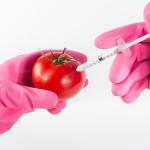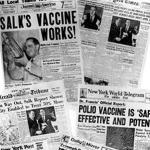Researchers considered that question specifically for new technology foods, like GMOs, where there is a great deal of public opposition.
GMOs
Several years ago, when I first became a science communicator, I was giving a talk in Seattle about GMOs.
It's a new year, but we're the same old ACSH. While everyone else was out partying and celebrating, we were busy debunking junk and spreading the good word about science. This year is already off to a great start.
The British Parliament is something to behold. And it's not just because of its storied history or the breathtaking neo-Gothic architecture of the Palace of Westminster.
Imagine wandering through the grocery store, and your eye catches a flashy label on a bottle of orange juice: "Does not contain CYANIDE." What would you think?
We had a really bad flu season this year. The CDC just announced that about 80,000 Americans were killed.
Europeans are a scientific mess in 2018.
The myth that "natural is better" is widespread and pernicious. Though it can manifest in relatively harmless ways (e.g., consuming overpriced organic food), the relentless pursuit of all-things natural can be dangerous or even deadly.
Environmental contamination with heavy metals is often the result of various types of industrial processes. Because heavy metals can be dangerous to humans and other wildlife, contaminated sites need to be cleaned up. This isn't easy.












